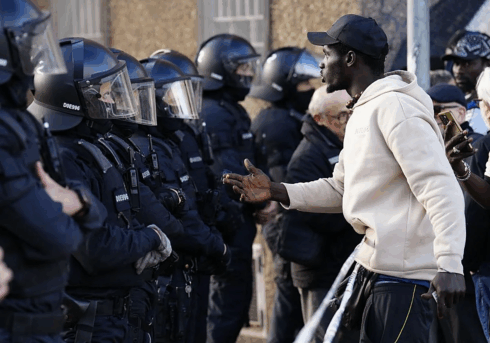EMBATTLED prime minister Pedro Sanchez has received a welcome boost after Spain’s Constitutional Court voted to approve a highly contentious amnesty law designed to withdraw legal action against key separatist leaders over their role in the illegal 2017 Catalan independence referendum.
Judges on the court responsible for interpreting Spain’s constitution voted by six votes to four to endorse the law following an appeal lodged by the conservative Partido Popular (PP).
In a press release, the court rejected claims by the PP that the law represents a ‘self-amnesty’, saying that ‘a law debated and approved by the parliament of a democratic state cannot qualify as a self-amnesty’.
It added that Spain’s constitution does not ‘explicitly’ prohibit amnesty laws, and therefore the current proposal is constitutionally valid.
However, it did uphold two key points raised by the PP: the amnesty must apply to people who rallied against the Catalan independence movement – known as the procés – and the law should be limited to events occurring between November 2011 and November 2023.

The news was welcomed by Sanchez – currently at the NATO summit in the Hague – who hailed the verdict as ‘wonderful news for Spain, for its coexistence and cohesion’.
He added: “We are satisfied because we have always maintained that the law passed by congress would be constitutional, and this has now been confirmed.
“The law was approved by a chamber elected by citizens, underwent debate and appeals, and has now been ruled constitutional by a court.”
Last year, Spain’s Congress formally approved the controversial amnesty law following months of bitter debate.
The conservative, pro-independence Junts per Catalunya party, led by separatist leader and fugitive from Spanish justice Carles Puigdemont, and left-wing Esquerra (ERC) had demanded the law in exchange for handing Sanchez the parliamentary support his Socialist party (PSOE) required in order to command a majority in Congress.
Puigdemont, who has lived in self-imposed exile in Belgium since 2017, was expected to be the law’s highest profile beneficiary, but last year Spain’s Supreme Court ruled that the amnesty would not apply to Puigdemont, who is currently subject to an arrest warrant over the alleged misuse of public funds.

The Catalan separatist movement infamously reached its nadir in 2017 with an illegal referendum and a unilateral declaration of independence, prompting the central government of then-prime minister Mariano Rajoy to dissolve Catalunya’s parliament and launch legal proceedings against key separatist figures, including Puigdemont.
The Constitutional Court’s decision will be welcome news for Sanchez after a tricky couple of weeks at home and abroad, with the prime minister’s coalition dependent on support from regional separatist parties.
Sanchez’s government is currently mired in a succession of corruption scandals, while President Trump recently threatened to double tariffs with Spain after Sanchez refused to sign up to NATO’s spending target of 5% of GDP on defence.
Click here to read more Catalunya News from The Olive Press.








